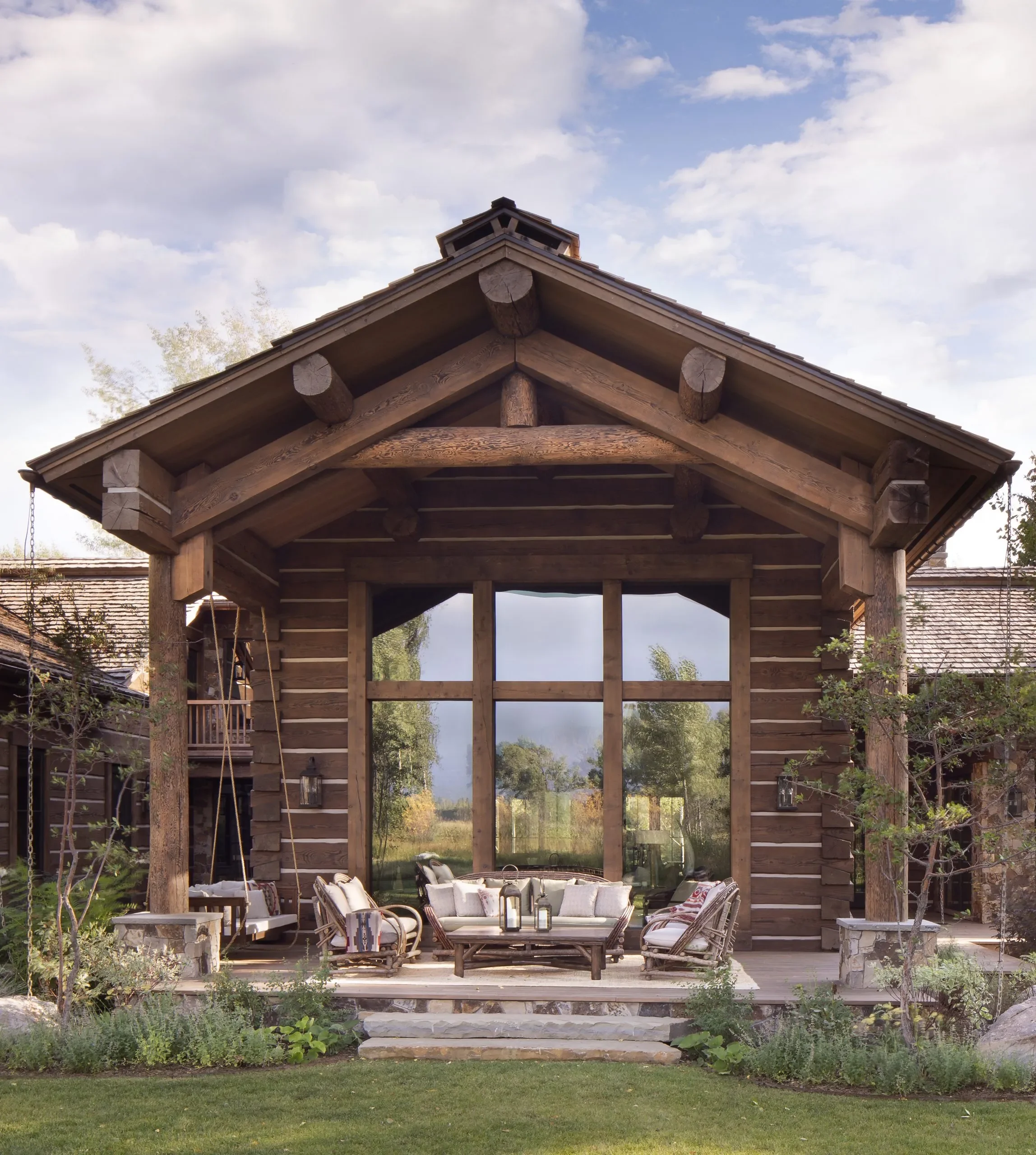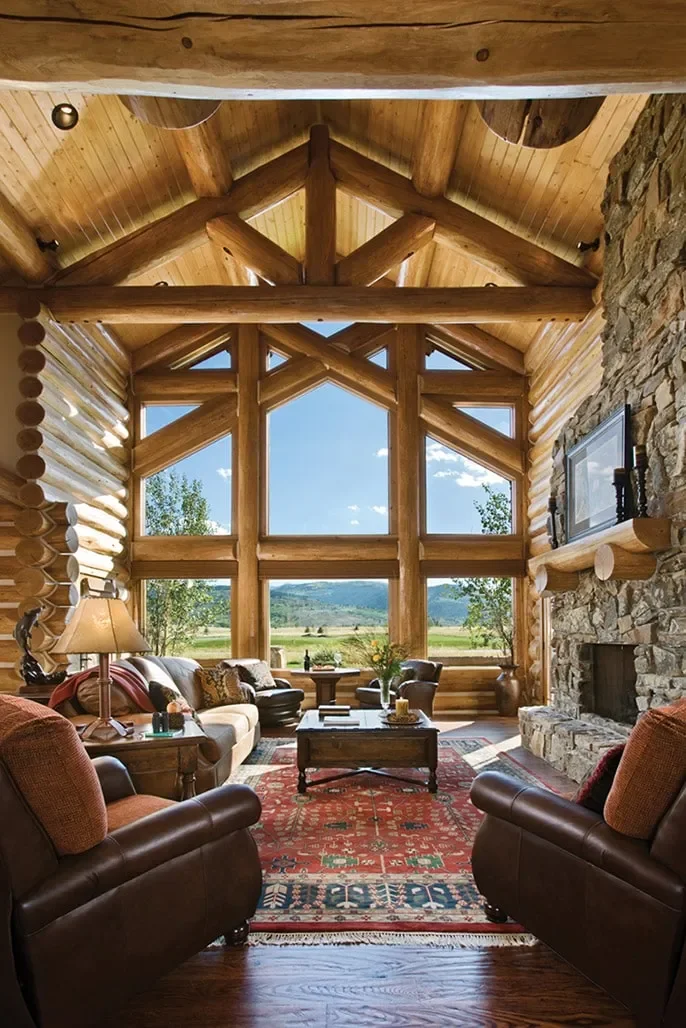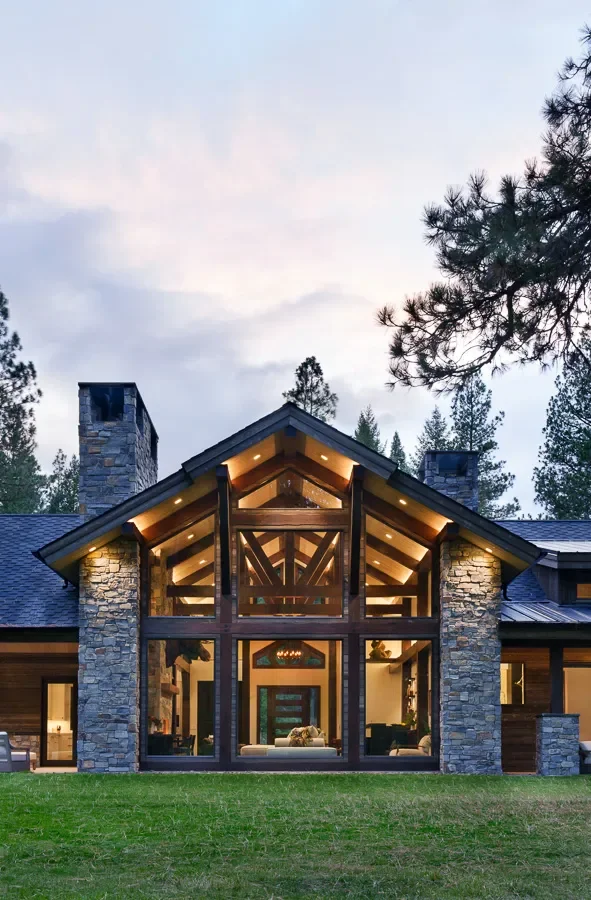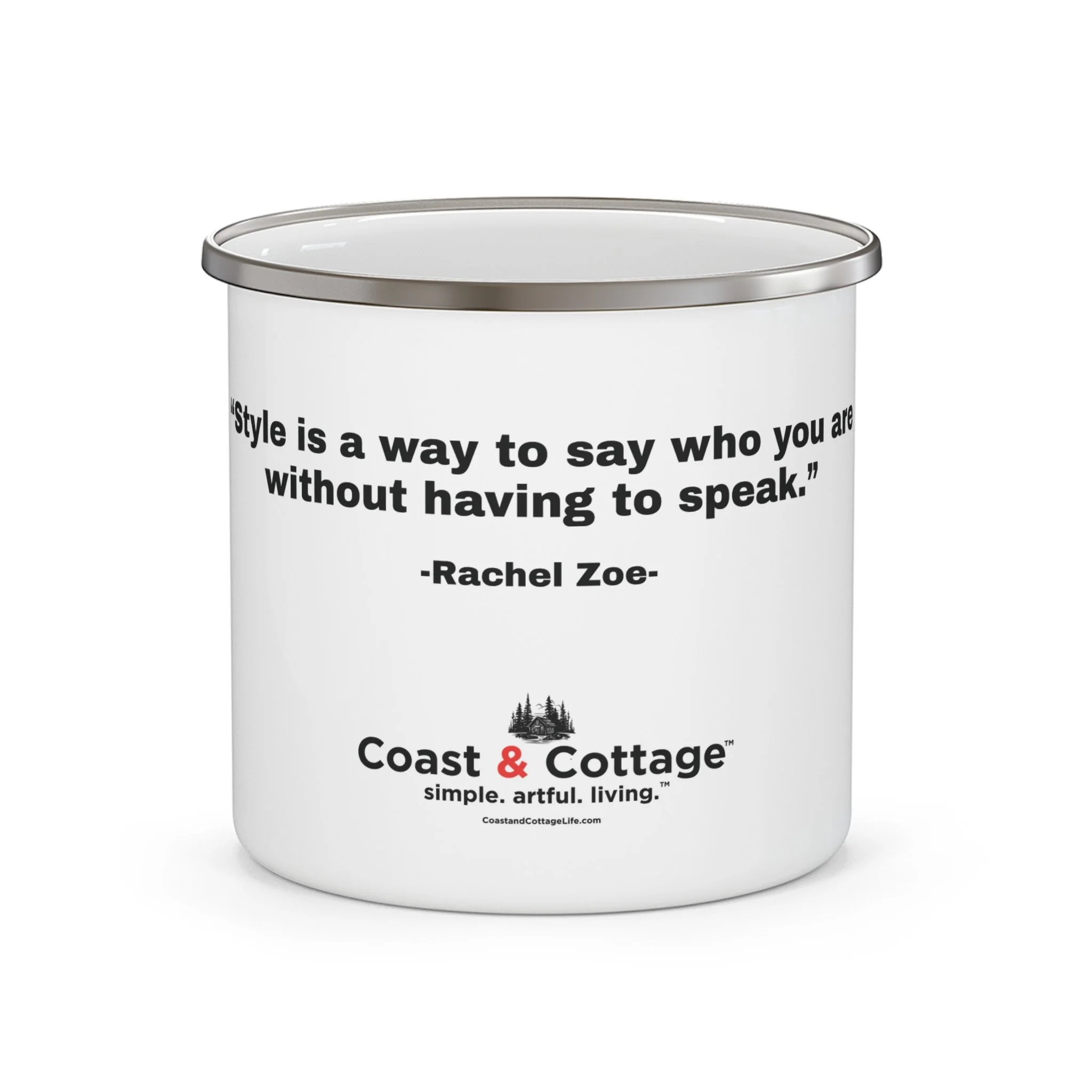The Log Home
“A log home is not just built, it is grown—crafted from nature, with nature, to become a part of nature again.”
— Anonymous
Log homes offer a unique combination of beauty, strength, and eco-conscious living that sets them apart from conventional construction. One of their most notable advantages is energy efficiency. Thanks to the thermal mass of solid wood, log homes naturally retain heat in winter and stay cooler in summer, reducing heating and cooling costs when built with precision-fit or insulated materials. Their durability is also a major plus—when properly maintained, log homes can last for centuries. The interlocking structure and solid mass provide exceptional resistance to wind, storms, and even seismic activity, making them ideal for rugged terrains like mountains or forests.
PrecisionCraft. View.
Sustainability is another key benefit. Many builders use responsibly harvested or reclaimed timber, and some even offer carbon-neutral building options. This makes log homes a lower-impact, environmentally friendly choice, especially when materials are sourced locally. Aesthetically, they provide unmatched warmth and charm. The natural grain, color variations, and tactile appeal of wood create a cozy, inviting atmosphere that harmonizes beautifully with outdoor settings. Sound insulation is also superior—thick log walls help dampen noise for a peaceful interior.
Structurally, log homes offer exceptional strength and can be customized in countless ways, from traditional cabins to luxurious timber-frame estates with open layouts and modern finishes. However, there are important considerations. Regular maintenance—such as sealing, staining, and inspecting for pests—is necessary, and logs can shrink or settle over time, requiring flexible design techniques. Insurance costs may be slightly higher in some areas due to fire risk, though modern treatments and building practices are improving this.
In essence, choosing a log home means embracing a lifestyle that values craftsmanship, character, and connection to nature. It's a timeless option for those seeking a one-of-a-kind residence that blends functionality with natural beauty.
PrecisionCraft
PrecisionCraft Log & Timber Homes was founded in 1990 in Meridian, Idaho, and has since grown into one of the most respected names in luxury log and timber home design. Originally a small log home manufacturer, the company expanded steadily over three decades, establishing a reputation for creating high-end, custom mountain-style residences throughout North America. In 2011, PrecisionCraft was acquired by PFB Corporation, a Canadian-based company. It became part of the PFB Custom Homes Group, alongside sister brands such as M.T.N Design, Riverbend Timber Framing, and Point Zero Homes. This strategic move allowed PrecisionCraft to further integrate its design and build process, offering what it now calls the “Total Home Solution℠”—a comprehensive approach that manages everything from architectural design and engineering to fabrication and on-site delivery.
A defining feature of PrecisionCraft’s service is its in-house design firm, M.T.N Design, which enables seamless coordination across the design-build process. Unlike many kit-based log home manufacturers, PrecisionCraft treats each home as a fully customized architectural project. Their homes incorporate advanced engineering, tight-fit joinery (down to 1/16 of an inch), and high-performance components like structural insulated panels (SIPs) and insulated concrete forms (ICFs), allowing for both energy efficiency and long-term durability.
By the early 2000s, PrecisionCraft had expanded its reach internationally, delivering custom log and timber homes to locations including Taiwan, Greece, Japan, and Australia. Each project was adapted to the local climate and building codes while maintaining the company's signature Western American design sensibility. Over the years, their dedication to craftsmanship and innovation has earned them numerous accolades, including multiple Jerry Rouleau Awards for Excellence in home design and marketing from the National Association of Home Builders (NAHB). In 2024, they were recognized with the Pulse of the City News Award for Excellence in Customer Satisfaction.
What began as a regional log home business has evolved into a globally recognized builder of luxury mountain homes. PrecisionCraft's commitment to design integrity, sustainable practices, and quality craftsmanship continues to set them apart in the custom home industry. Whether building in the Rockies or abroad, they bring decades of expertise to every timber and log structure they create.
Timberlyne. Visit.
Timberlyne Homes
Timberlyne Homes began in Wayne, Nebraska, as Sand Creek Post & Beam, Inc., founded on March 1, 2004, by Len Dickinson and his wife Jule Goeller. Inspired by their love for traditional wooden barns and rural heritage, they started the business by building a barn in their driveway. Demand quickly grew among homeowners—especially baby boomers—seeking character-rich timber buildings instead of generic metal structures. What began as a niche barn kit company soon expanded into homes, cabins, commercial venues, and agricultural buildings, with thousands of custom kits shipped across the United States.
Throughout the late 2000s, Sand Creek gained national recognition, appearing on the Inc. 500 Fastest Growing Companies list from 2009 to 2012. It was named the SBA Nebraska Business of the Year in 2011 and received sustainability awards in 2015. In 2010, the company acquired Texas Timber Frames, a San Antonio-based business founded in 1987, enhancing its capabilities in detailed timber-frame construction. By 2013, both brands were brought under a new umbrella: Timberlyne Group. With headquarters in Nebraska and additional operations in Texas, the company streamlined its identity while expanding its offerings.
To ensure supply chain control and quality, Timberlyne began acquiring sawmills—starting with Dickinson Timber in Minnesota in 2017 and followed by Cass Forest Products in 2022, which included Aitkin Hardwoods. These acquisitions strengthened Timberlyne’s vertical integration, providing sustainable sources for timber, millwork, and paneling. A significant challenge came in October 2013 when an EF-4 tornado destroyed the company’s production facility in Nebraska. Despite the devastation, Timberlyne resumed full operations within a month, working out of temporary rented spaces—demonstrating both resilience and a strong commitment to its team and customers.
By June 2024, Timberlyne celebrated its 20th anniversary, having shipped more than 10,000 unique structures to 49 states. Each project was fully custom—no two alike—highlighting the brand's commitment to craftsmanship and individuality. The milestone was marked with an open-house celebration at their Wayne showroom, where the founders reflected on the company’s journey and impact.
Now under the leadership of Jack Dickinson, son of founder Len Dickinson, Timberlyne continues to innovate while honoring its roots. A standout project includes the design and shipment of the Victory Capital Performance Center for the San Antonio Spurs in 2023, one of the largest mass-timber commercial structures in U.S. sports. Timberlyne remains a leader in pre-designed and custom post-and-beam and timber-frame kits, guided by values of beauty, sustainability, and longevity rooted in its founding mission.
Katahdin. Visit.
















